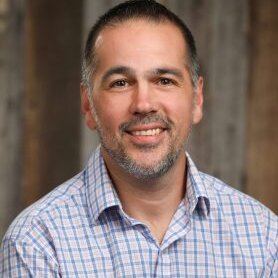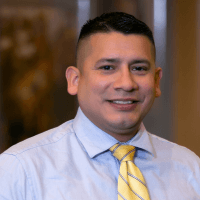A researcher's perspective on how the new Community Navigator Program can best reach disconnected small businesses.
Our local and federal government officials face a steep challenge: with additional coronavirus relief funding at their disposal, they must find new strategies to reach small business owners who are disconnected from resources and social networks. Given my work as an entrepreneurial ecosystem analyst, I believe ecosystem builders are the missing link.
Resources for entrepreneurs and business owners include the individuals, programs and organizations that offer support. Such support could be found through a mentorship program, a bank, a coworking space, a government office, or an accounting firm, for example. Community navigation refers to the work of connecting small business owners and entrepreneurs to the complex web of existing resources in their ecosystem. Ecosystem building goes further, into the development of that network: cultivating “a system of support and resources for entrepreneurs in their communities or industries,” as the Kauffman Foundation’s Entrepreneurial Ecosystem Building Playbook outlines. This work is critical to ensuring that small businesses, which make up the bulk of all U.S. businesses, and BlPOC entrepreneurs—who our research shows are systematically underrepresented—can participate in entrepreneurial ecosystems that too often are not set up to serve them.
Government agencies have an opportunity to leverage experienced community-level entrepreneurial ecosystem builders to reach the most disconnected entrepreneurs. The new Community Navigator program, funded through the Small Business Administration (SBA), aims to connect underserved and disconnected entrepreneurs to federal and local relief programs. The program is an opportunity for the awarded support organizations to apply lessons and strategies from the existing field of entrepreneurial ecosystem building, such as the ESHIP Communities program run by Forward Cities. By prioritizing equity, the navigation program could catalyze stronger ecosystems across the country.
Using insights from two of Forward Cities’ datasets, it’s clear ecosystem builders are equipped to be effective community navigators because they are deeply rooted in their communities, are tirelessly dedicated to making connections and finding answers, and prioritize the most vulnerable entrepreneurs. I’ll start with how ecosystem building happens at a granular level.
Between October 2020 and March 2021, ecosystem builders kept detailed records of who they met with and what was discussed. Forward Cities used this data to better understand what parts of the ecosystem the ecosystem builders touch, and what primary roles they play in interactions. Below are some takeaways:
Ecosystem builders create collective knowledge through strong connections across a wide array of public and private agencies.
The ecosystem builders we work with have a deep-rooted and a growing pool of connections across government, advocacy, nonprofit and for-profit organizations. In Kansas City, for example, the ecosystem builder we work with, Gabe Muñoz, met with over 170 unique small business owners and resource providers over a 4.5 month period. This wide-reaching and diverse network allows community navigators to quickly access and share information relevant to a specific business owner’s context, allowing businesses to more easily grow and remain strong.
Ecosystem builders serve in several unique capacities.
Twenty percent of the time, they are a collaborator, working together with a
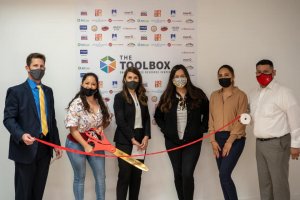
The Toolbox Open House Community Leaders and Guests Pose with Gabe Munoz, ESHIP Kansas City Local Director (Far Right)
partner to enhance the ecosystem in some way. About 40% of the time, they are sharing or receiving information that deepens the overall awareness of what is happening in the ecosystem. They can serve in multiple capacities in the same interaction. Other roles include: connectors, bringing two previously disconnected stakeholders together, researchers, who gain knowledge around what resources exist and how to access them, and direct supporters, who work alongside small business owners. They also serve as event planners, representatives, mentors, mentees, administrators, and community leaders. Their diverse participation in the ecosystem is the core method through which they strengthen relationships, build trust, deepen ecosystem awareness and expertise, and ultimately make the ecosystem better off. Their oversight prepares them to inform any small business owner of what opportunity they might not yet be aware of, making them qualified navigators.
Given what we have learned about how ecosystem builders work, it’s no surprise that they are able to reach the most disconnected entrepreneurs and effectively connect them to the broader ecosystem. Data from the Kansas City Toolbox, a small business resource center that links individuals to federal and local resources, which is now transitioning from a pilot to a sustained nonprofit, suggests that effective community navigation is tough work, best for those most enmeshed in the local community.
Strong community navigators bring disconnected small businesses into the ecosystem resource network.
Over 80% of the participants in the KC Toolbox pilot have not worked with an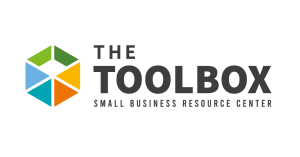 ecosystem resource before the start of the initiative. How did they reach these folks? Through a tireless stream of cold calling, in-person visits, referrals from current clients, and highlighting success stories and testimonials on various media outlets that reach diverse populations. Pulling in and creating sustainable connections to small business owners and entrepreneurs requires a dedication and financial commitment that few can find.
ecosystem resource before the start of the initiative. How did they reach these folks? Through a tireless stream of cold calling, in-person visits, referrals from current clients, and highlighting success stories and testimonials on various media outlets that reach diverse populations. Pulling in and creating sustainable connections to small business owners and entrepreneurs requires a dedication and financial commitment that few can find.
Several interactions may be required to support small business owners in submitting applications.
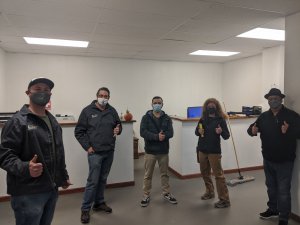
ESHIP Rio Grande Local Director Erin Ortigoza (Second from the Right) On Location at New Mexico Harvest
In the case of the KC Toolbox pilot, some met as many as seven times, and others met with as many as three different advisors to obtain the necessary expertise. This involvement speaks to the set of complex challenges faced by small business owners, such as setting up accounts, retrieving paperwork, and compiling the Paycheck Protection Program (PPP) and other new applications. A successful navigator is tireless, and focused on continual support.
Smaller loan amounts are still wins.
While 36% of participants are still waiting on their applications to be processed, the Toolbox’s PPP support initiative successfully reached the smallest, most often overlooked businesses, with over $154,000 in PPP loans already approved and an average loan amount of $10,301 dollars. With the backdrop of a federal program that was initially challenging or impossible for small businesses to reach, this is necessary progress toward relief access.
Pre-existing connections to potential client communities matter.
Over 50% of Toolbox clients were born outside of the U.S. and over 35% prefer to operate their business in a language other than English. These are high portions of immigrant representation and linguistic diversity thanks to Gabe’s long history of ecosystem building, as well as the strong cultural competency of him and his network.
Our data from the last several months demonstrates that deeply rooted community navigators are vital to connecting small business owners to support resources in their community. If you are interested in learning more about the demonstrated ecosystem navigation support work my colleagues offer in their communities or want to chat about how to make the most out of the Community Navigator pilot, please reach out using the contact information below. It’s going to take all of us in collaboration to get our local communities through the rest of the pandemic and toward ecosystems that work for everyone.
Brett Brenton, Senior Director of Learning Networks, can speak to how you can apply these lessons in your community. He can be reached at bbrenton@forwardcities.org
To learn more about how the Toolbox reaches a diverse set of small business owners in the KCK area, contact Gabe Muñoz at gmunoz@forwardcities.org
Eliza Salmon is the Senior Manager of Research and Operations for the ESHIP Communities program at Forward Cities, which is funded by the Kauffman Foundation. Senior Vice President Nicolas Gunkel contributed to this piece.
